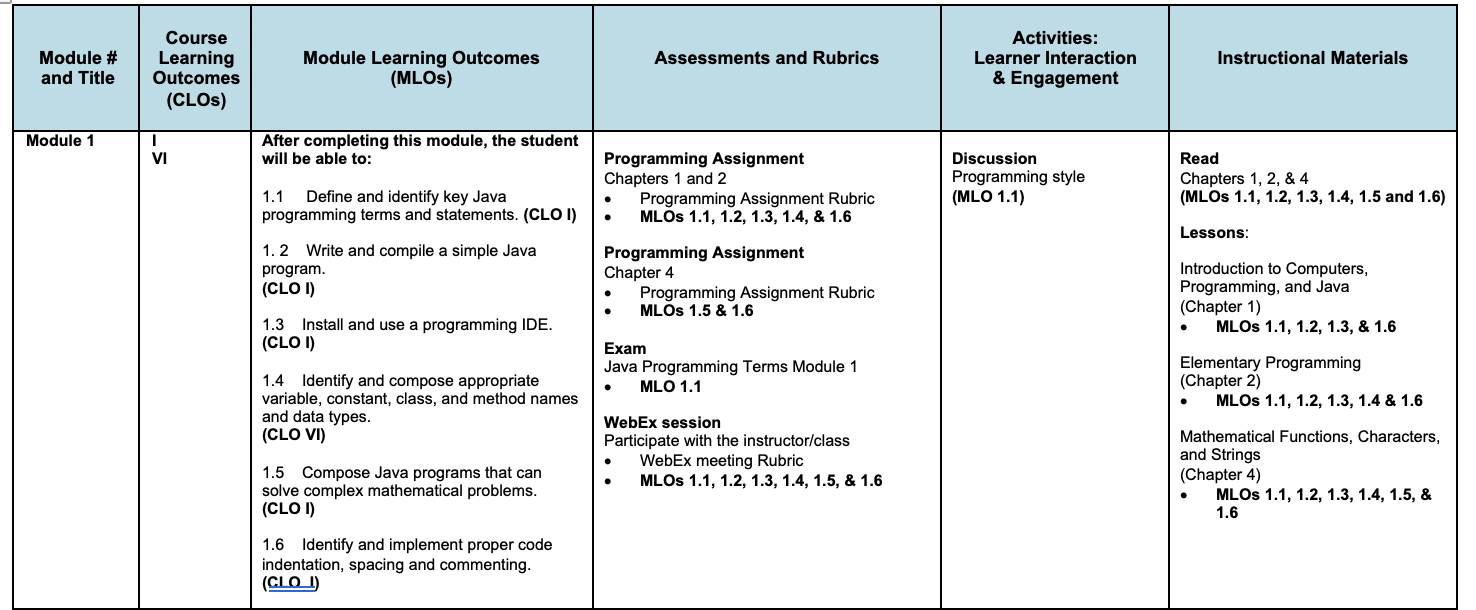A few weeks ago, I shared some resources that included an interactive site which allowed you to plan out each lesson or module of your course. The information below can be used to help you to map out your course. Couse Mapping is an excellent approach to designing or redesigning a course. The Course Mapping Guide linked below allows you to complete a curriculum analysis of your course which results in a course map that displays the alignment of all components of a course. If you view the example on their site of the Java Programming class, you are able to see how each of the course outcomes are addressed through the modules of the course. You can also understand how the assessments and rubrics, learner interactions and engagements, as well as the instructional materials support the learning outcomes for each module: https://www.coursemapguide.com/mapping-your-course
Screen shot of course map at the modular level.
Quality Matters provides a similar tool that includes a Learning Objectives Activity. This activity helps you to ensure that your learning objectives are S.M.A.R.T.:
Specific, Measurable, Achievable, Relevant, and Time Bound. https://www.qualitymatters.org/sites/default/files/presentations/MapYourWayToAQualityCourse_HandoutLOs_ApodacaForsythe.pdf For more information see: https://www.qualitymatters.org/qa-resources/resource-center/conference-presentations/map-your-way-quality-course-course-mapping
A few more template examples can be found here:
https://nmsu.instructure.com/courses/949381/assignments/3676931

